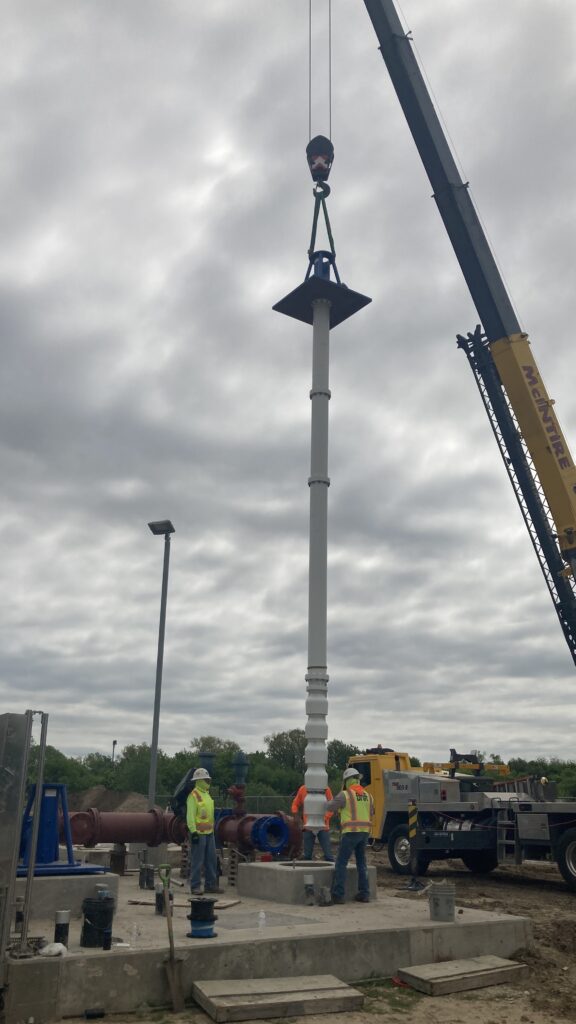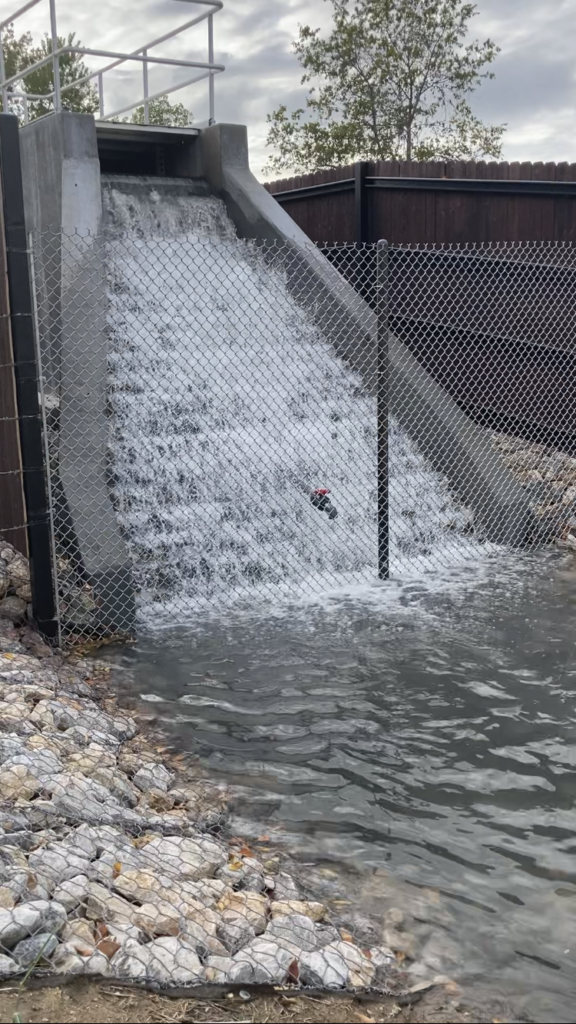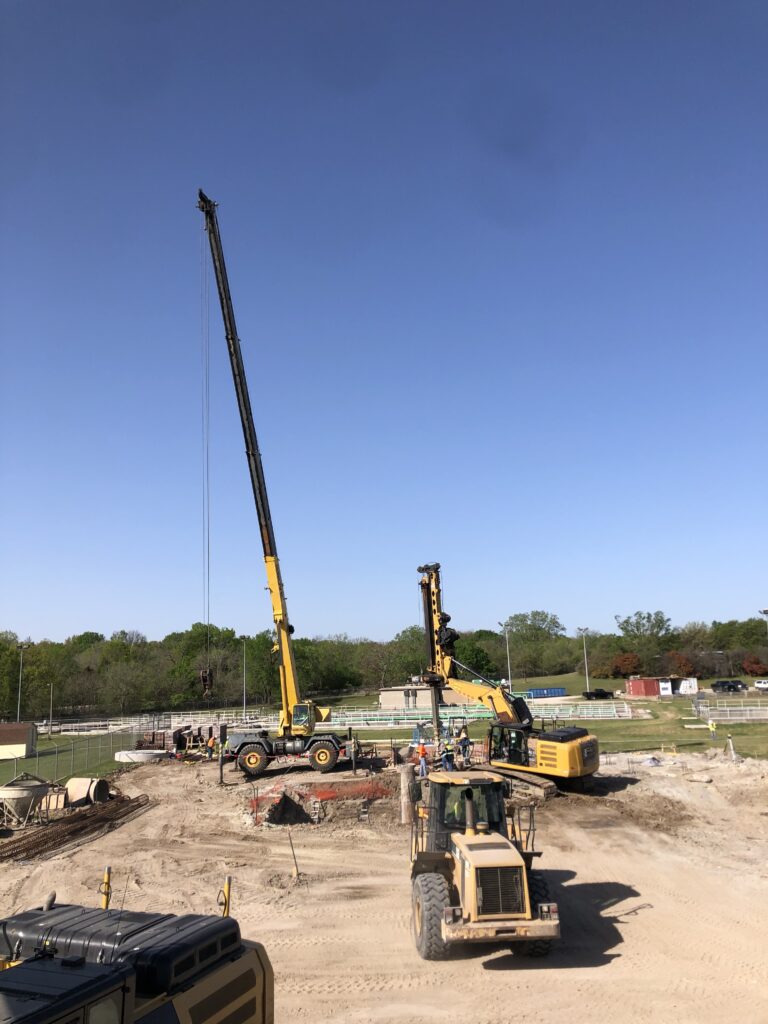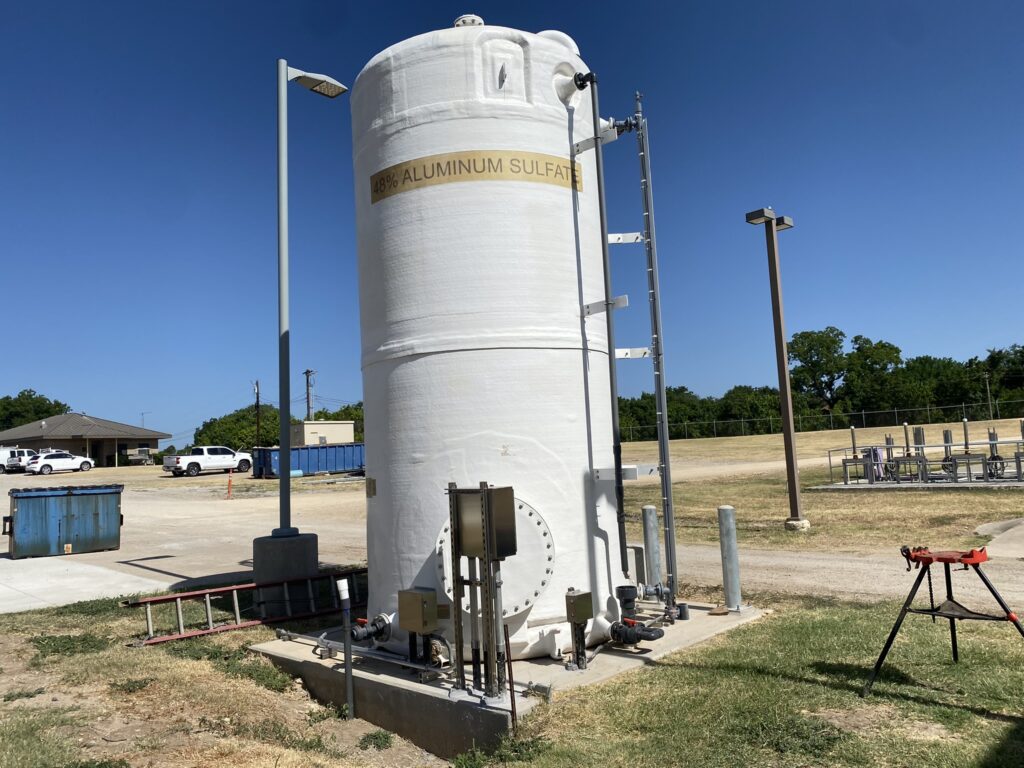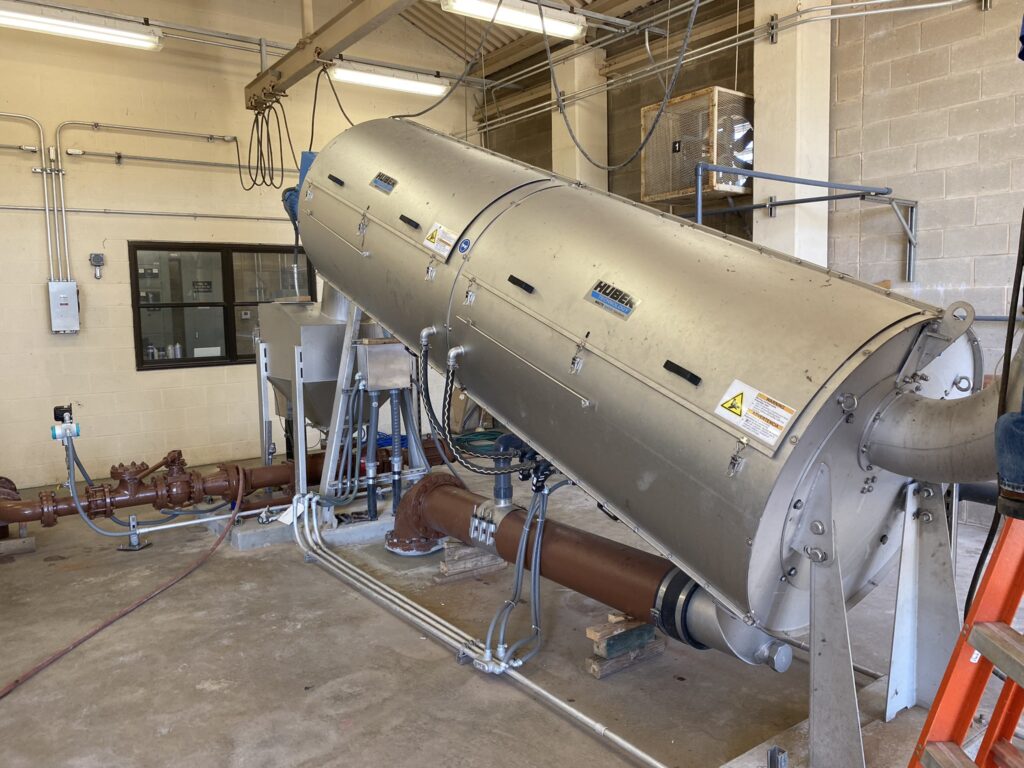Weatherford’s Innovative Reuse System Wins Texas Water Award
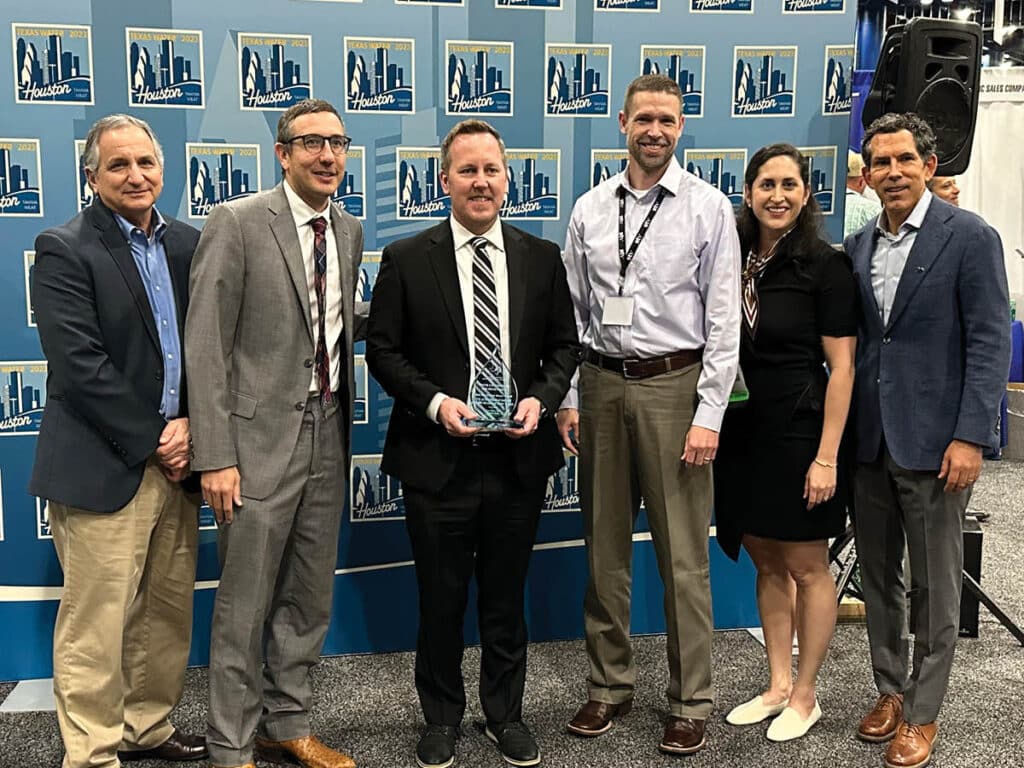
Congratulations to the project team behind the City of Weatherford’s Indirect Potable Reclaimed Water System. They received the Bob Derrington Reclamation Award at the Texas Water TM 2023 Awards Ceremony put on by the Texas American Water Works Association (Texas AWWA) and Water Environment Association of Texas (WEAT).
A decade in the making, the City of Weatherford’s Indirect Potable Reclaimed Water System involved extensive planning, permitting, design and construction. The fast-growing North Texas city accomplished a major goal in bringing up to 4.5 million gallons per day (MGD) of reclaimed water to its Lake Weatherford supply, providing an additional sustainable water source.
The need for an additional water resource was highlighted during times of drought, when the city’s water demand exceeded Lake Weatherford’s reliable supply. To offset the deficit, the city would purchase water from the Tarrant Regional Water District and pump it from Lake Benbrook to Lake Weatherford. This project makes it possible to meet water demand most years without pumping from Lake Benbrook. This will allow the city to use their available water supplies more efficiently and save on energy costs.
“It’s been an extremely rewarding process to be involved in this project from beginning to end,” said Project Manager Ryan Opgenorth, Transmission and Utilities, Fort Worth. “The City of Weatherford set out to find a long-term and innovative solution to address their water supply needs, and the indirect potable reclaimed water system accomplishes that goal. “
“The project was started on the heels of the historic 2011 drought,” said Treatment Task Leader Erin Flanagan, Water and Wastewater Treatment, Dallas. “It caused the city to take a closer look at their available water supply and how to address future droughts and future water needs.”
It was at this time that Freese and Nichols began working with the City to amend their water right in Lake Weatherford to permit the reuse of the treated wastewater effluent discharged to Lake Weatherford. The water right was granted in April 2017. This process can be lengthy, and our Water Resources Planning Team was instrumental in overseeing a successful water right amendment process from beginning to end.
She said that even when floods provided a water surplus, the city stayed focused on long-term needs to make sure this project was completed.
To add reclaimed water to the supply, numerous improvements were required at the Wastewater Treatment Plant (WWTP). The WWTP was originally permitted for a 4.5-MGD annual average daily flow and a 12.2-MGD peak 2-hour flow. The WWTP improvements had to meet stricter limits for phosphorus and dissolved oxygen. The more stringent effluent limits were achieved through both biological and chemical phosphorus removal in conjunction with biosolids treatment improvements.
Freese and Nichols also led design of a new 5-MGD pump station that was integral to the project. The project includes a 6.25-mile, 14-inch-to-18-inch-diameter transmission main, an outfall structure and cascade at Lake Weatherford.
At final completion, the system will initially pump approximately 2.1 MGD of reclaimed water, resulting in a potential of up to 781 MG of water reclaimed per year. The city is currently permitted to pump up to 4.5 MGD of reclaimed water to Lake Weatherford, addressing future water needs as the city continues to grow.
In winning the Bob Derrington Reuse Award, the city was recognized as a key leader in project execution for long-term, cost-effective and innovative solutions while meeting the project objectives of providing reclaimed water.
“We are thrilled to celebrate this win with the City of Weatherford,” Ryan said. “This award recognizes the importance and value that the project brings to the community.”
About the award: The Bob Derrington Reuse Award is named after the visionary and innovative Odessa Texas Utility Manager who, in the 1980s, expanded Odessa’s existing water reuse program. As a strong advocate for reuse long before it was popular, Bob Derrington understood that the beneficial use of treated effluent and water conservation would not only increase water supplies for Odessa but help develop the expansion of reuse in Texas.
